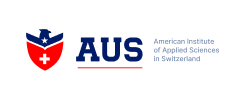Bern
CapitalGerman, French, Italian, and Romansh
Language+41
Dialing Code₣ Swiss Franc (CHF)
CurrencyApproximately 8.6 million
Population₣3,000 per semester*
Tuition Fees₣2,000 per month*
Living ExpensesFall | Spring
IntakesWhy Study in Switzerland?
Switzerland is renowned for its high-quality education system, picturesque landscapes, and multicultural environment. Its universities and schools offer a diverse range of programmes, including many in English, attracting students from around the world. Switzerland’s commitment to innovation, research, and academic excellence, coupled with its stable economy and high standard of living, make it an attractive destination for those seeking a world-class education and a unique cultural experience.
Benefits
Personal Development
Enhance skills like adaptability, independence, and problem-solving
Industry Connections
Form qualitative relations with industry leaders across the globe
Student Discounts
Avail various discounts for students on transportation, food, and more
Student Support
Dedicated support for students, from counseling to guidance
Quality Education
Gain practical knowledge to enhance your real-world knowledge
Internship Opportunities
Along with completing your degree, get working exposure with international internships
Explore MetaApply Calculators
Eligibility Criteria
| Academic Qualifications | Equivalent to Swiss secondary education for undergraduate programmes; relevant bachelor’s degree for postgraduate programmes. |
| Language Proficiency | Proof of language proficiency (e.g., TOEFL, IELTS, DALF, DELE) as required by the chosen programme. |
| Entrance Exams | Some programmes may require additional tests or interviews. |
Required Documents
| Completed Application Form | Specific to each university or institution. |
| Academic Transcripts | Official copies from all previous institutions. |
| Proof of Language Proficiency | Test scores or certificates demonstrating proficiency in the language of instruction. |
| Statement of Purpose | Detailing your motivation and goals. |
| Letters of Recommendation | From academic or professional referees. |
| Passport Copy | Valid for the duration of your stay. |
| Financial Documents | Evidence of sufficient funds to cover tuition and living expenses. |
| Passport-Sized Photographs | Recent photographs as per specifications. |
VISA Requirements
| Visa Application Form | Completed and submitted to the Swiss embassy or consulate in your home country. |
| Passport | Valid for the duration of your stay. |
| Acceptance Letter | From a recognised Swiss educational institution. |
| Proof of Financial Support | Bank statements, scholarship letters, or financial sponsorship. |
| Health Insurance | Proof of health coverage for the duration of your stay. |
| Student Visa or Residence Permit | Issued by the cantonal migration office upon approval of the visa application. |
Cost of Study in Switzerland
| Tuition Fees | Varies by programme and institution; generally, CHF 1,000 to CHF 3,000 per semester for undergraduate programmes and CHF 1,500 to CHF 4,000 per semester for postgraduate programmes. |
| Living Expenses | Approximately CHF 18,000 to CHF 30,000 per year, depending on location and lifestyle. |
| Health Insurance | Around CHF 80 to CHF 200 per month. |
| Books and Supplies | Around CHF 1,000 to CHF 2,000 per year. |
Please note: All information is sourced from web and the data may vary—kindly refer to official or government websites for the most accurate details.
Countries in Europe
Process of MetaApply
Frequently Asked Questions
Intakes vary by institution and program, but the primary intakes are usually in the fall (September/October) and spring (February/March).
Yes, international students are allowed to work part-time up to 15 hours per week during the academic year and full-time during official vacation periods.
Yes, various scholarships and grants are available from Swiss universities, government organisations, and private foundations based on merit and need.
After receiving an acceptance letter from a Swiss institution, you can apply for a student visa or residence permit at the Swiss embassy or consulate in your home country.
Yes, health insurance is mandatory for all residents in Switzerland, including students, and must cover essential medical costs for accidents and illnesses.

Download Destination Guide
Get destination-wise insights, requirements, and university options.























